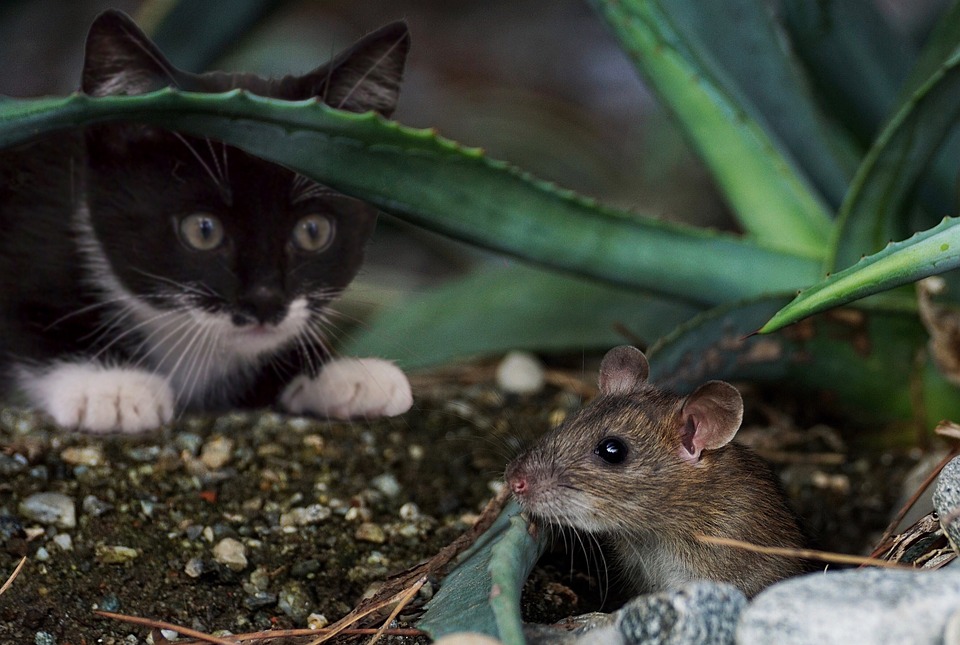Heartworm disease is a serious and potentially life-threatening condition that not only affects dogs but can also affect outdoor cats. While cats are considered atypical hosts for heartworms, they can still become infected and suffer from severe health complications. In this article, we will discuss how to recognize and manage symptoms of heartworm disease in outdoor cats, ensuring their well-being and longevity.
Heartworm disease is caused by a parasitic worm called Dirofilaria immitis, which is transmitted through mosquito bites. When a mosquito carrying heartworm larvae bites a cat, the larvae enter the cat’s bloodstream and eventually develop into adult worms, primarily residing in the heart and pulmonary arteries. While dogs are more commonly affected by heartworm disease, outdoor cats are also at risk due to their exposure to mosquitoes.
Recognizing the symptoms of heartworm disease in cats is essential for early detection and timely treatment. Some common symptoms include lack of appetite and weight loss, coughing and difficulty breathing, vomiting and diarrhea, lethargy and decreased activity levels, collapsing or sudden weakness, and jaundice and pale gums. These symptoms may vary in severity depending on the number of worms present and the stage of the disease.
Diagnosing heartworm disease in cats involves a combination of physical examinations, medical history checks, blood tests, antigen testing, and diagnostic imaging such as x-rays or ultrasound. A veterinarian will assess the cat’s overall health and use these diagnostic tools to confirm the presence of heartworms and determine the extent of the infection.
Managing heartworm disease in outdoor cats requires prompt veterinary attention and a comprehensive treatment plan. It is crucial to consult with a veterinarian for proper diagnosis and treatment recommendations. Medications such as heartworm preventatives and specific drugs to eliminate heartworms may be prescribed. Rest and reducing physical exertion are also important to minimize stress on the cat’s heart and lungs during treatment. Follow-up appointments and monitoring are necessary to ensure the cat’s response to treatment and to make any necessary adjustments.
Here are some frequently asked questions about heartworm disease in cats:
1. Can indoor cats get heartworm disease too?
Yes, although the risk is significantly lower for indoor cats due to their limited exposure to mosquitoes.
2. Is heartworm disease contagious to other cats?
No, heartworm disease is not directly contagious from one cat to another. It can only be transmitted through mosquito bites.
3. Can heartworm disease be cured in cats?
While heartworm disease can be treated and managed in cats, the treatment process can be challenging and there may be long-term effects on the cat’s health.
4. What are the long-term effects of heartworm disease in cats?
Heartworm disease can cause irreversible damage to the cat’s heart, lungs, and blood vessels. This can lead to chronic respiratory issues, heart failure, and even death.
5. How often should outdoor cats be tested for heartworms?
Outdoor cats should be tested annually for heartworms, especially if they live in regions with a high mosquito population.
6. Are there any natural remedies to prevent heartworm disease in cats?
While natural remedies may help repel mosquitoes, they do not offer reliable protection against heartworm disease. It is best to consult with a veterinarian and use approved preventive medications.
7. Is heartworm disease preventable in cats?
Yes, heartworm disease is preventable in cats. Regular use of veterinarian-prescribed heartworm preventatives is the most effective way to protect cats from this potentially deadly disease.
In conclusion, recognizing and managing symptoms of heartworm disease in outdoor cats is crucial for their health and well-being. By being aware of the signs and consulting with a veterinarian, you can ensure early diagnosis and appropriate treatment. Remember, prevention is always better than cure, so it’s important to take preventive measures and protect your outdoor cat from heartworm disease. Stay informed, stay vigilant, and prioritize your cat’s health.








